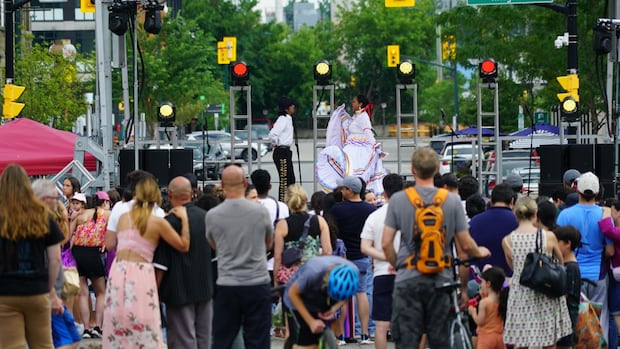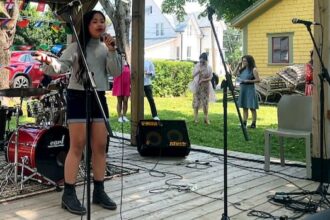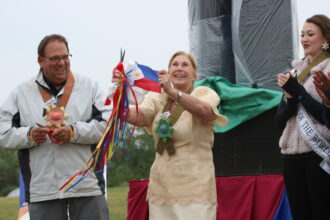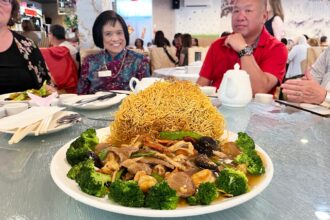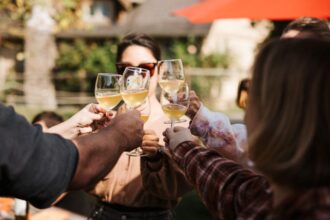The sun beat down on Victoria Park this weekend as thousands of Londoners gathered to experience a world tour without ever leaving the city limits. The annual London Multicultural Festival transformed downtown into a vibrant tapestry of sounds, scents, and spectacles that reminded us why cultural diversity remains one of our greatest collective strengths.
As I wandered through the festival grounds on Saturday afternoon, the air was thick with the aroma of global cuisines – from sizzling Filipino barbecue to fragrant Indian curries, Ethiopian injera, and Polish pierogies. But this festival has always been about more than just food tourism; it’s a living, breathing testament to London’s evolving identity as a multicultural hub.
“This is our 50th year celebrating multiculturalism in London,” explained Maria Rodriguez, one of the festival organizers I spoke with. “What began as a small gathering has grown into one of the city’s most anticipated summer events, drawing over 25,000 visitors throughout the weekend.”
The festival’s growth mirrors London’s own demographic transformation. Once predominantly European in its cultural makeup, the city now boasts communities from every corner of the globe. According to recent census data, more than 22% of London’s population was born outside of Canada, representing over 130 countries and 100 languages. This diversity was on full display across the festival’s five performance areas, where traditional dance troupes, musicians, and artists showcased their cultural heritage.
I was particularly struck by a performance from the London Chinese Cultural Centre, whose dancers seamlessly blended traditional folk elements with contemporary movements – a perfect metaphor for the immigrant experience itself. Nearby, the thunderous beats of Afro-Caribbean drummers created an impromptu dance circle where strangers of all backgrounds found common ground in rhythm.
“I bring my children here every year,” said Amina Hassan, a Somali-Canadian who has called London home for the past decade. “It’s important for them to see themselves represented in public spaces, but also to learn about other cultures they might not encounter in their daily lives.”
This cultural exchange is perhaps the festival’s most valuable contribution to our civic life. In an era where political discourse often focuses on what divides us, events like the Multicultural Festival remind us of our shared humanity. They create spaces where differences are not merely tolerated but celebrated – where cultural pride doesn’t come at the expense of unity.
The festival’s marketplace featured over 50 vendors selling handcrafted goods from around the world – intricate Ukrainian embroidery next to vibrant Guatemalan textiles and delicate Japanese calligraphy. Each item told a story of tradition preserved across oceans and generations.
“These aren’t just souvenirs,” explained Javad Tahmasebi, who emigrated from Iran 15 years ago and now sells handcrafted Persian goods. “They’re pieces of identity, connections to homelands that many of us had to leave behind. When someone buys something from my booth, they’re taking home a piece of my culture’s story.”
This sentiment captures the essence of what makes such cultural exchanges meaningful. In our increasingly digital world, where authentic experiences seem increasingly rare, there’s something profoundly human about direct cultural engagement – tasting unfamiliar spices, hearing languages that transform our understanding of how meaning can be conveyed, or watching dance forms that express emotions in ways words cannot.
London’s festival isn’t unique in Canada – cities across the country host similar celebrations of multiculturalism each year. But what makes these gatherings significant is how they serve as counterpoints to the troubling rise in ethnonationalism and xenophobia we’ve witnessed globally in recent years. They offer concrete evidence that diversity strengthens rather than weakens community bonds.
Mayor Jenkins, who opened the festival on Saturday morning, emphasized this point: “London’s greatest resource isn’t in our industry or our geography – it’s in our people and the diversity of experiences they bring. This festival isn’t just a celebration; it’s a demonstration of who we are as a city.”
Of course, we should be careful not to mistake festive multiculturalism for the harder work of true inclusion. As several community leaders pointed out during a panel discussion on Saturday, there remains a gap between celebrating diversity and addressing systemic barriers that many newcomers face. Events like the Multicultural Festival can create goodwill and understanding, but that energy must be channeled into more substantive changes in our institutions and policies.
As the festival wound down on Sunday evening with a spectacular fusion performance featuring artists from five continents, I couldn’t help but reflect on how much richer our cultural landscape has become through immigration. The traditions on display weren’t static museum pieces but living practices adapting to new environments while maintaining their core essence.
The London Multicultural Festival offers us not just a glimpse of our present demographic reality but a preview of Canada’s future – one where cultural exchange happens naturally and differences are sources of collective strength rather than division. In an increasingly fractured world, perhaps that’s a vision worth celebrating and, more importantly, worth working to realize beyond the festival grounds.

